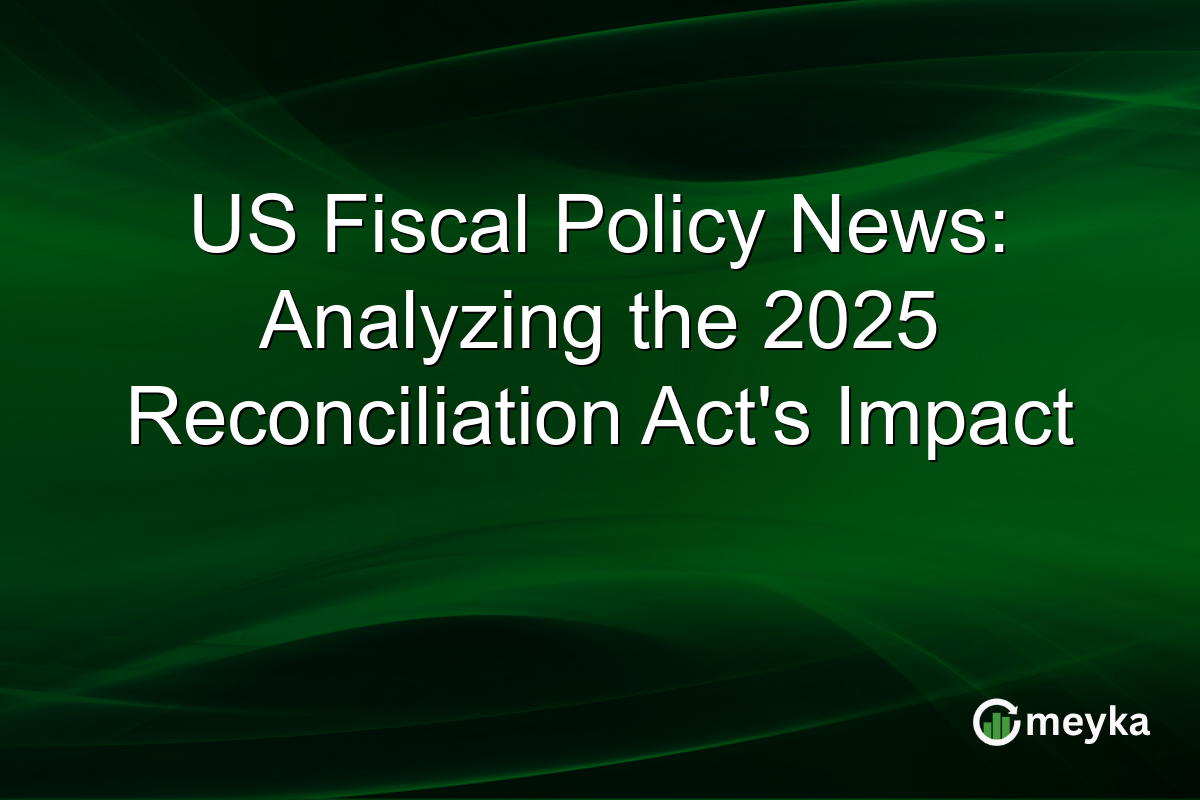US Fiscal Policy News: Analyzing the 2025 Reconciliation Act’s Impact
The 2025 Reconciliation Act, recently signed by President Trump, is shaping up to be a pivotal moment in US fiscal policy. This legislation aims to address critical facets of the national economy, focusing on measures for deficit reduction and significant budget reconciliation. Investors and policymakers are keenly observing how these changes will play out, impacting both short-term and long-term fiscal strategies. The Act’s influence extends to a wide array of economic territories, marking a critical juncture for financial forecasting and national fiscal health.
Understanding the 2025 Reconciliation Act
At its core, the 2025 Reconciliation Act seeks to bring about a comprehensive restructuring of fiscal policies, specifically targeting deficit reduction. By modifying existing tax policies and government spending, it aims to trim the budget deficit by nearly $300 billion over the next decade. This ambitious goal is framed within a strategy that pushes for greater efficiency in public spending while attempting to stimulate economic growth through strategic tax incentives.
This shows President Trump’s administration’s direction towards ensuring economic stability and sustainability. Moreover, the Act has ignited conversations around balancing immediate fiscal challenges with longer-term economic priorities. More insights on Reddit.
Impacts on US Fiscal Policy
The implications of the 2025 Reconciliation Act on US fiscal policy are multifaceted. Crucially, it introduces measures aimed at curbing government spending in non-essential sectors, coupled with carefully designed tax reductions poised to invigorate private investment. This dual approach is anticipated to tighten fiscal discipline while fostering an environment ripe for economic expansion.
Looking ahead, the Act could redefine budget reconciliation processes, making it a cornerstone of future legislative negotiations. Such measures stand to affect not only government fiscal strategies but also investor confidence and the broader economic landscape.
Deficit Reduction and Economic Growth
A central objective of the 2025 Reconciliation Act is deficit reduction, projecting to significantly lower the national deficit over the next ten years. This move aligns with the broader strategy to enhance fiscal sustainability and economic growth. Proponents argue that reducing the deficit will lower interest rates, attract foreign investments, and ultimately, stimulate economic activity.
For investors, this translates into potential market stability and growth opportunities across different sectors. However, the true test will be how these fiscal changes translate into tangible economic outcomes over time.
Budget Reconciliation and Legislative Dynamics
Budget reconciliation is a procedural tactic aimed at expediting the legislative process, especially for budget-related bills. In the context of the 2025 Reconciliation Act, this mechanism has proven instrumental in passing significant fiscal reforms quickly and efficiently.
For lawmakers, this provides a powerful tool to swiftly enact policy changes, yet it brings to light the complexities and potential bipartisan challenges of crafting effective legislation. As such, the success of this Act heavily depends on continued political negotiation and compromise.
Final Thoughts
The 2025 Reconciliation Act stands as a landmark in US fiscal policy, shaping the landscape of deficit management and economic strategy. Its emphasis on responsible fiscal governance, while fostering growth, speaks to a robust commitment toward achieving long-term national financial stability. As investors and policymakers closely watch, the Act’s success will lean heavily on practical implementation and adaptive legislative responses.
Looking forward, this legislation positions itself as a blueprint for future reforms, setting a precedence in balancing fiscal responsibility with economic innovation. Its impact, both immediate and prolonged, will craft the financial contours of the nation, guiding not just economic policy but investor sentiment and market dynamics. It’s essential for stakeholders to stay informed and engaged as the effects of this Act unfold.
FAQs
The primary goal of the 2025 Reconciliation Act is to achieve substantial deficit reduction, aiming to decrease the national budget deficit by nearly $300 billion over the next decade through targeted tax reforms and spending cuts.
The Act impacts US fiscal policy by tightening fiscal discipline through spending cuts and tax incentives, potentially enhancing economic growth and promoting investor confidence.
Budget reconciliation is crucial as it allows for expedited legislative processes for budget-related bills, facilitating quicker enactment of fiscal reforms posed by the 2025 Reconciliation Act.
Disclaimer:
This is for information only, not financial advice. Always do your research.






